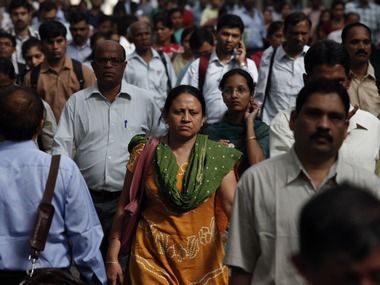 Prime Minister Narendra Modi's idea of cooperative federalism is expected to be on display in the 2015-16 Budget with the government planning to transfer more untied funds to states through centrally sponsored schemes.
Prime Minister Narendra Modi's idea of cooperative federalism is expected to be on display in the 2015-16 Budget with the government planning to transfer more untied funds to states through centrally sponsored schemes.
Besides, states are likely to receive a higher tax devolution in line with recommendations from the 14th Finance Commission.
The number of centrally sponsored schemes stands at 66, with states having the flexibility to spend 10 per cent of the total allocation at their discretion but within the overall objectives of the programme.
Earlier, there used to be 147 such schemes.
States were allocated over Rs 3 lakh crore funds through the central schemes in 2014-15, over Rs 2 lakh crore of which were tied.
States are expected to receive most of the funds as untied in 2015-16.
Officials said the number of schemes could be brought down to around 15, which reflected the priorities of the Modi government and would incorporate flagship programmes launched by the previous United Progressive Alliance government such as the Mahatma Gandhi National Rural Employment Guarantee and the Rashtriya Swasthya Bima Yojana.
In the case of new schemes too, officials said views from state governments would be incorporated within the broad objectives, giving them flexibility for local adjustments.
Besides, the Finance Commission's recommendations are likely to reflect in the Budget, although that will make the Centre's job of reining in the fiscal deficit at 3.6 per cent of the gross domestic product in 2015-16 a little more difficult.
The commission is expected to suggest states' share of the divisible tax pool be raised to 42 per cent from 32 per cent.
At 32 per cent, the states' share was Rs 3,82,216 crore of gross tax revenue of Rs 13,64,524 crore in 2014-15.
Cess and surcharges do not form part of the divisible pool. At 42 per cent, states would have received Rs 5,01,658 crore.
However, the recommendations will be implemented from 2015-16.
The 13th Finance Commission had raised the states' share to 32 per cent from 30.5 per cent.
The commission also recommended switching to an accrual-based accounting from a cash-based system.
This might mitigate the practice of carrying over the subsidy amount by the Centre whenever it struggles to meet the fiscal deficit target.
In cash accounting, income is recorded when cash is received and expenses are recorded when cash is paid out.
However, in accrual accounting, income and expenses are recorded as they occur, regardless of whether cash has actually changed hands.
Many advanced nations follow accrual accounting.
The commission also observed that the many of the subjects in the State and Concurrent Lists of the Constitution had been encroached into by the Centre, which should be avoided.
The commission, headed by former Reserve Bank of India Governor Y V Reddy, submitted its report to the government last year, but it is yet to be tabled in Parliament.













 © 2025
© 2025